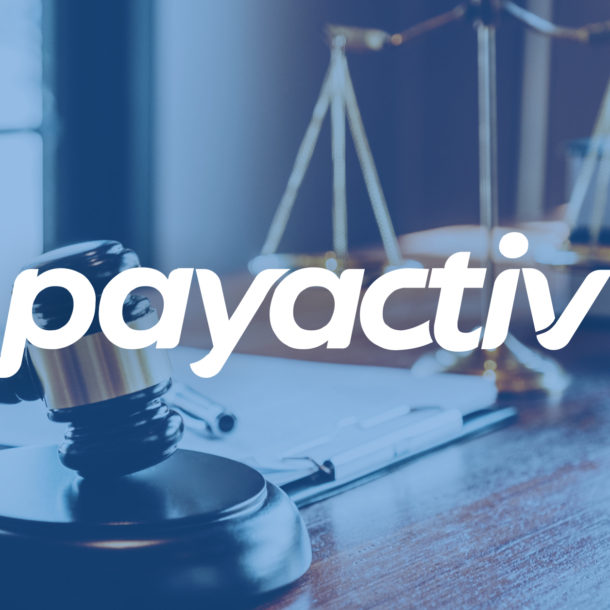
How Payactiv Can Boost Satisfaction and Retention for Employees
If you could wave a magic wand, what would you wish for in 2024? You’d likely hope for an increase in yearly sales and profits. You’d probably also ask that your employees stay satisfied, healthy, dedicated to their work, and keen to remain with your organization.
A comprehensive, flexible financial wellness program can help you achieve both of these aims.
Employee Financial Well-Being is a Win-Win
According to the Consumer Financial Protection Bureau, financial well-being is a state where a person can fully meet their current and ongoing financial obligations, feel secure in their financial future, and make choices that allow them to enjoy life.
Employer-sponsored programs that build employee wellness in these critical areas are good for companies, too. Studies show that correctly executed financial well-being programs can deliver up to a 1500% return on investment. Conversely, poor financial wellness (or programs that fail to make a meaningful impact on employees’ financial health) can cost a 1000-employee company over $240,000 in lost productivity each year. That’s because people who feel financially insecure are more stressed and less focused at work.Simultaneously, building employees’ financial well-being will help with retention and put you in a stronger position to keep the people you already have. Companies using financial wellness benefits provided by Payactiv report increased retention rates and reduced business turnover by 30% on average, and 81% of employees say they’re more likely to stay with their current employer because of these benefits.
Closing the Gap
There’s a compelling case for offering financial wellness benefits, including greater employee retention and satisfaction, but why do financial wellness programs sometimes fall short of employers’ expectations in terms of adoption and ROI? One reason is that employees are simply unaware of some or all the benefits offered by their employer. Other times, there’s a gap between the types of solutions employees want and what their employers provide.
You can’t take a one-size-fits-all approach because every employee is in a different place. Improving retention for employees requires designing a program that meets people where they are. For example, many companies still only offer programs that focus almost exclusively on retirement planning and education with an emphasis on increasing employee 401(k) participation. However, these benefits programs often have a low participation rate. Currently, 4 in 10 employees who have access to a 401(k) are not participating. There are two reasons for this:
- Employees are struggling to make ends meet and don’t have the money to put toward retirement savings.
- They don’t see the value in using an employer-sponsored retirement plan.
Retirement education only addresses the second of these scenarios. For people unable to save for retirement, no amount of knowledge will solve their financial problems.
Consider a Gen-Z worker fresh out of college and living independently for the first time. They need to put money aside every month to pay down their student loans and have some cash left over to socialize with their friends on weekends. This individual would likely benefit from resources and tools that help them master the art of budgeting. In addition, on-demand pay solutions will provide them with welcome relief when unexpected expenses crop up between paychecks.
Another employee is about to become a first-time parent. Once the baby showers are over, they’ll need to navigate everything that comes with parenthood including medical and childcare costs. They might also want to set up a college savings fund. Here, a digital financial coaching platform or access to 1-on-1 financial counseling can help greatly.
Getting on the Same Page
Up-and-downstream communication is key to getting everyone on the same page about what employees really want and need. Managers: are you setting time aside to keep up with what’s going on in people’s lives so you can understand their top financial concerns? You can gather this information through formal and informal channels and then share it with your HR team and senior leadership.
Once a company has designed a suite of financial wellness benefits and resources that align closely with their employees’ most pressing financial pain points, they should work with their internal communications team to ensure that these perks are regularly communicated to employees throughout the year.
Meet Your Employees Where They Are At to Improve Satisfaction and Retention
The best employer-sponsored financial wellness programs are flexible enough to give workers the support, knowledge, and resources they need at every life stage. From growing their financial literacy, managing their immediate financial obligations, or working towards longer-term financial goals – a holistic platform meets your employees where they are.
To speak with a company that has impressive results in increasing employee recruitment and retention rates through a holistic approach to financial well-being, contact Payactiv today.
All content provided on Payactiv.com/blog/ is for informational purposes only. Payactiv makes no representations as to the accuracy or completeness of any information on this site or found by following any link from this site. Payactiv will not be liable for any errors or omissions in this information nor for the availability of this information. Payactiv will not be liable for any losses, injuries, or damages from the display or use of this information.
Get Payactiv for your business
© 2024 Payactiv, Inc. All Rights Reserved
24 hour support: 1 (877) 937-6966 | [email protected]
* The Payactiv Visa Prepaid Card is issued by Central Bank of Kansas City, Member FDIC, pursuant to a license from Visa U.S.A. Inc. Certain fees, terms, and conditions are associated with the approval, maintenance, and use of the Card. You should consult your Cardholder Agreement and the Fee Schedule at payactiv.com/card411. If you have questions regarding the Card or such fees, terms, and conditions, you can contact us toll-free at 1-877-747-5862, 24 hours a day, 7 days a week.
** Central Bank of Kansas City is the issuer of the Payactiv Visa Prepaid Card only and does not administer, endorse, nor is liable for the Payactiv App.
1 Standard rates for data and messaging may apply from your wireless provider.
Google Play and the Google Play logo are trademarks of Google LLC.
Apple and the Apple logo are trademarks of Apple Inc., registered in the U.S. and other countries. App Store is a service mark of Apple Inc., registered in the U.S. and other countries.

